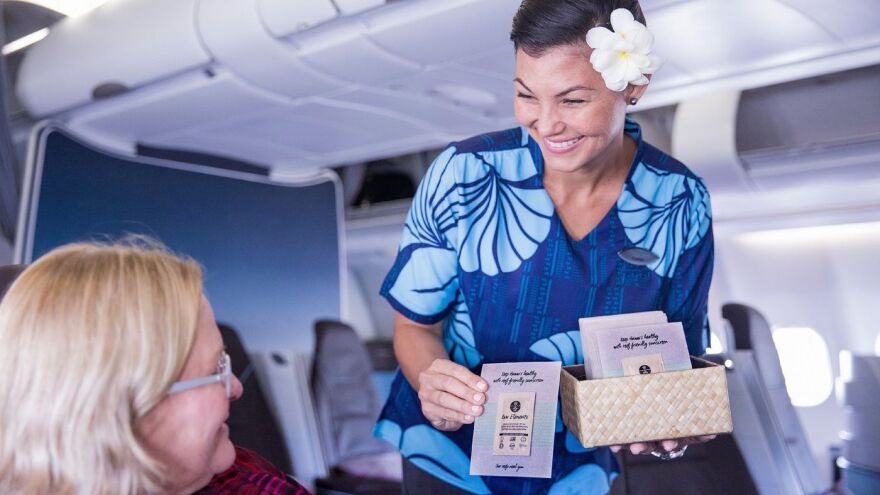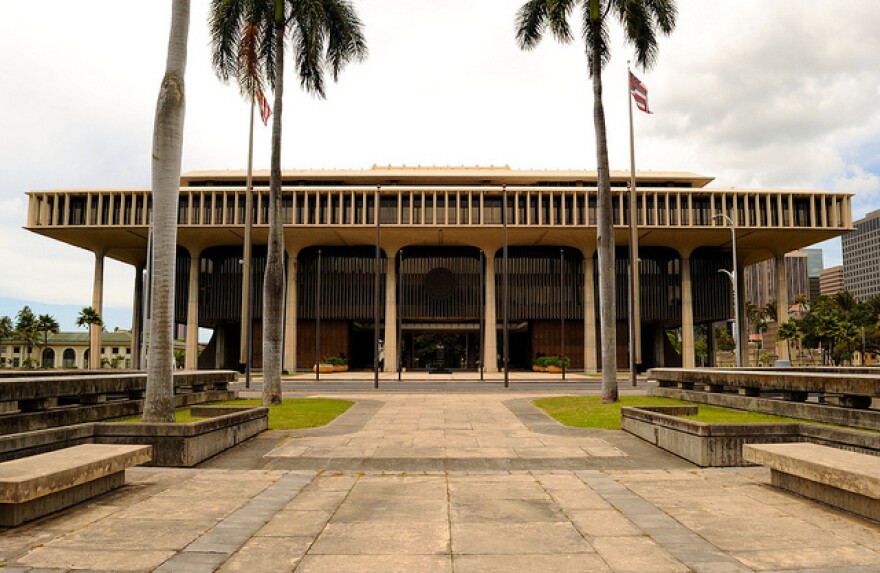Oxybenzone may soon become a thing of the past. Yesterday, Hawai?i lawmakers approved a state-wide ban on the sale of sunscreen containing the chemical. HPR Reporter Ku?uwehi Hiraishi has this story.
Oxybenzone has been used in some sunscreens since the 1970s to make them longer-lasting and consumer-friendly. But lawmakers citing scientific studies that link the chemical to coral reef damage has put Hawai’i on a path to becoming the first oxybenzone-free state in the nation.

“We’re on the cutting edge by banning these dangerous chemicals in sunscreens,” says state Senator Mike Gabbard, “And when you think about it – our island paradise, surrounded by coral reefs – this is the perfect place to set the gold standard for the world to follow.”
Sen. Gabbard introduced Senate Bill 2571 also known as the Sunscreen Pollution Ban. The bill prohibits the sale and distribution of sunscreens containing two chemicals – oxybenzone and octinoxate.
“I really believe this is going to make a huge difference in protecting our coral reefs, marine life, and human health,” says Sen. Gabbard.

But Dr. Chris Flanders, Executive Director of the Hawaii Medical Association, is concerned about the public health impact of such a ban in one of the world’s sunniest locations.
“You know we’ve got several decades of public policy and public health concerns about skin cancer and sun exposures,” says Dr. Flanders.
He’s concerned consumers won’t like the alternatives but he’s hoping the two and half years before the proposed law is set to take effect will allow manufacturers time to respond.

“That’s our big concern that we don’t people to skip on sunscreen,” says Dr. Flanders.
The bill makes exemptions for sunscreens categorized as “cosmetic” intended for use on the face, as well as sunscreens prescribed by a licensed healthcare provider. But the bill doesn’t ban the “use” of sunscreens with oxybenzone and octinoxate – something the tourism industry is working to address.

“I know Hawaiian Airlines, they’ve already got a movie they’re showing and they’re also even handing out a little sample of oxybenzone-, octinoxate-free sunscreens,” says Sen. Gabbard, “Hawai?i Tourism Authority, they’re on board as far as getting the hotels to start educating our tourists.”

Efforts to pass a similar ban last year stalled in part because of criticism that there wasn't enough scientific evidence. Lisa Bishop supports the bill and says this year was different.
“The scientific community from all over the world has been sending in their peer-reviewed studies to show that the scientific evidence is irrefutable,” says Bishop.
Bishop is President of the Friends of Hanauma Bay. Last November, her organization partnered with Dr. Craig Downs of the Haereticus Environmental Laboratory to test water samples from the bay for oxybenzone.

“Coral starts dying at 62 parts per trillion and we had 28,000 [parts per trillion],” says Bishop, “That is the highest measured level of oxybenzone in Hawai?i is at Hanauma Bay.”
She says that makes sense since the Bay gets about a million visitors a year.
“But now that we know that we have that, this bill is going to mitigate that,” says Bishop.
How exactly the state plans to enforce the proposed ban is unclear.

“Well, that still needs to be worked out – the enforcement part,” says Sen. Gabbard, “But the fact that we’ve extended the date to January 1, 2021, that that’s going to give everybody plenty of time to get on board.”
The bill passed unanimously out of the Senate and garnered just four no votes in the House. Now the bill awaits Governor David Ige’s signature.




